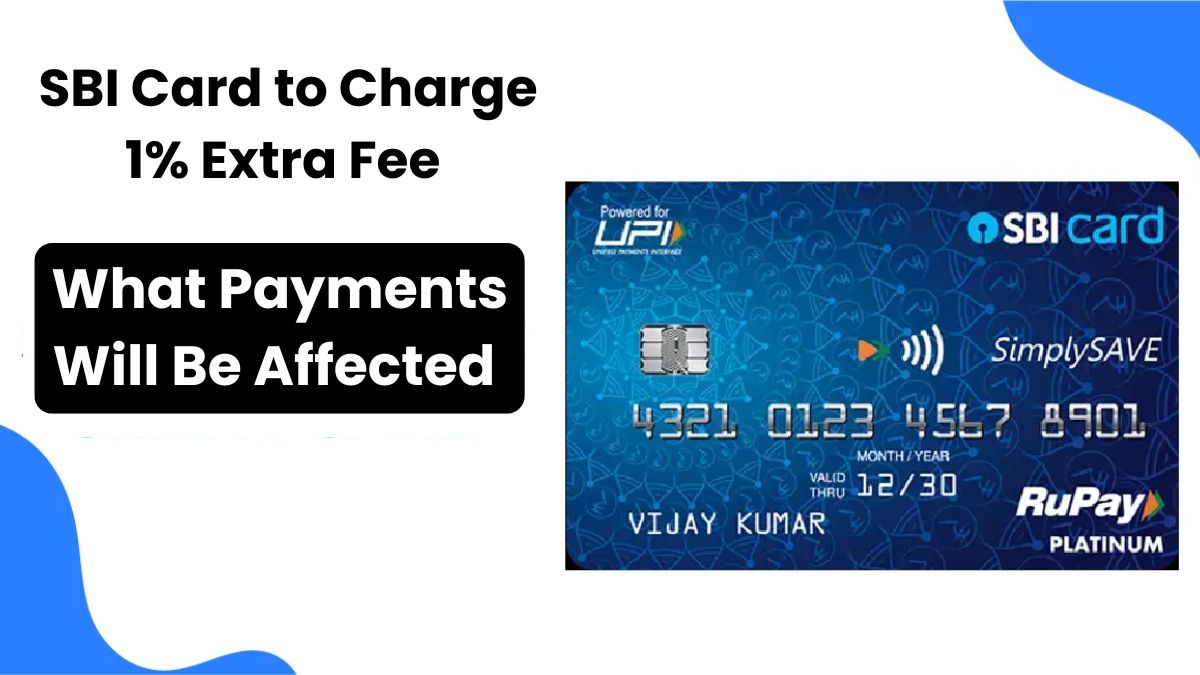Have you ever looked at your credit card bill and wondered — “Wait, where did this extra charge come from?” If you use an SBI Credit Card, it’s time to pay closer attention.
Starting November 1, SBI Card is introducing new fees on certain transactions. And if you’re someone who often pays school fees, loads digital wallets, or uses platforms like CRED, Cheq, or MobiKwik, these changes might hit your wallet harder than you think.
Let’s break down exactly what’s changing — and how you can avoid unnecessary fees while keeping your credit history safe.
What’s Changing from November 1
SBI Card will now charge a 1% fee on education-related payments and wallet loads made through third-party platforms like CRED, Cheq, and MobiKwik.
This charge applies only when the transaction falls under a specific Merchant Category Code (MCC) defined by the card network.
But here’s the relief
If you make the payment directly to a school, college, or university via the official SBI Card channels or through their on-site POS terminal, you won’t be charged this 1% fee.
Wallet Load Transactions Will Also Cost More
From November, loading money into digital wallets using your SBI Card will attract a 1% fee if the transaction amount exceeds ₹1,000.
That means if you often use your credit card to top up wallets like Paytm, PhonePe, or MobiKwik, your costs could quietly increase every month.
And remember, card networks can update merchant category codes (MCC) anytime, so what’s fee-free today might not be tomorrow.
Other SBI Card Charges You Should Know
While this new 1% fee has grabbed attention, SBI Card also has some fixed service charges you should keep in mind:
| Service | Charge |
|---|---|
| Cash payment fee | ₹250 |
| Cheque payment fee | ₹200 |
| Dishonour fee | 2% of payment amount (min ₹500) |
| Cash advance fee | 2.5% of amount (min ₹500, domestic & international) |
| Card replacement fee | ₹100–₹250 (Aurum Card ₹1,500) |
| Overseas card replacement | Visa $175, Mastercard $148 |
Late Payment Fees – Why Paying on Time Matters
Missing your Minimum Amount Due (MAD) even once can be costly.
Here’s how SBI Card’s late payment charges work:
| Outstanding Amount | Late Payment Fee |
|---|---|
| ₹0–₹500 | No charge |
| ₹501–₹1,000 | ₹400 |
| ₹1,001–₹10,000 | ₹750 |
| ₹10,001–₹25,000 | ₹950 |
| ₹25,001–₹50,000 | ₹1,100 |
| Above ₹50,000 | ₹1,300 |
Why These Changes Matter
At first glance, a 1% fee doesn’t sound like much. But think about it:
If you’re paying ₹50,000 in school or college fees through CRED or MobiKwik, that’s ₹500 extra — for a transaction that used to be free.



